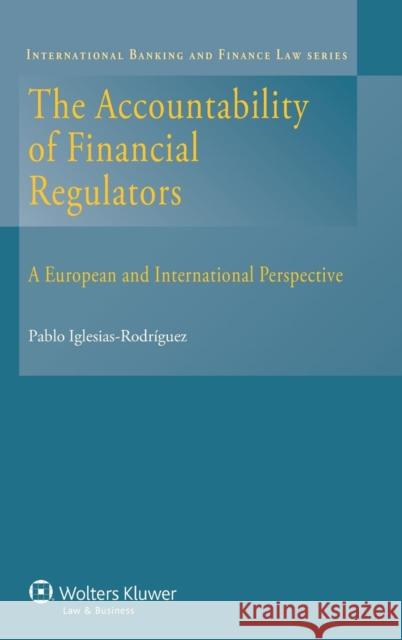The Accountability of Financial Regulators: A European and International Perspective » książka
The Accountability of Financial Regulators: A European and International Perspective
ISBN-13: 9789041138743 / Angielski / Twarda / 2013 / 392 str.
The Accountability of Financial Regulators: A European and International Perspective
ISBN-13: 9789041138743 / Angielski / Twarda / 2013 / 392 str.
(netto: 1020,55 VAT: 5%)
Najniższa cena z 30 dni: 1034,08 zł
ok. 16-18 dni roboczych
Bez gwarancji dostawy przed świętami
Darmowa dostawa!
This book is the first to provide a multilevel, comparative, interdisciplinary, and practical analysis of the legal aspects pertaining to the accountability of FRSAs. Its points of reference include pre- and post-crisis regulatory schemes in three comparable but diverse jurisdictions (Spain, the United Kingdom, and the United States of America), in the European Union, and in three international networks of FRSAs. The study evaluates and critiques the financial supervision architectures and reforms undertaken during the period 2009-2013. Centering his analysis on the various roles that legislatures, governments, and stakeholders (the financial industry, consumers, society at large) play as forums and actors to which FRSAs are accountable, the author engages with the following issues and much more: legal, political, and economic reasons behind differences in statutory approaches to FRSAs' accountability; models of accountability emerging from post-crisis overhauls; complementarities between the accountability structures operating at different jurisdictional levels and between instruments of accountability; reporting and disclosure duties of FRSAs; and participation of stakeholders in financial policymaking. The analysis includes abundant examples of applications of accountability mechanisms in different jurisdictions, such as appointment procedures of the heads of FRSAs, instances of judicial or quasi-judicial challenge of FRSAs' decisions, and claims for damages brought against FRSAs. Quantitative data is used where appropriate. The multilevel analysis - comparative, European, international - provides a comprehensive overview of the accountability of FRSAs and permits a comparison among different levels of regulation. The study sheds clear light on the impact of the FRSAs' accountability on the soundness of financial markets, the protection of investors, the stability of the financial system, and democratic control and justice. It also assesses whether and how post-financial crisis reforms have addressed the accountability shortcomings of the pre-crisis setting. For all of these reasons, it will be warmly welcomed by lawyers, academics, and policymakers working in financial services and related fields.











